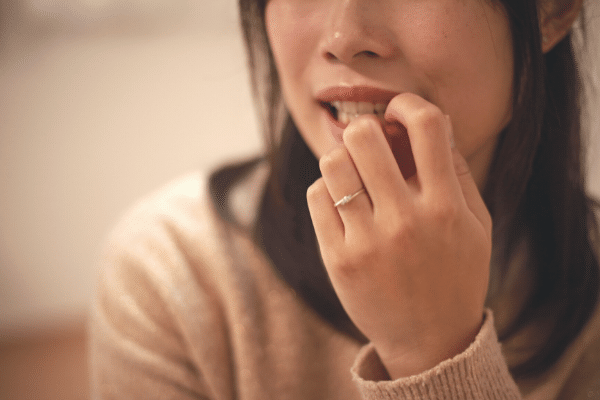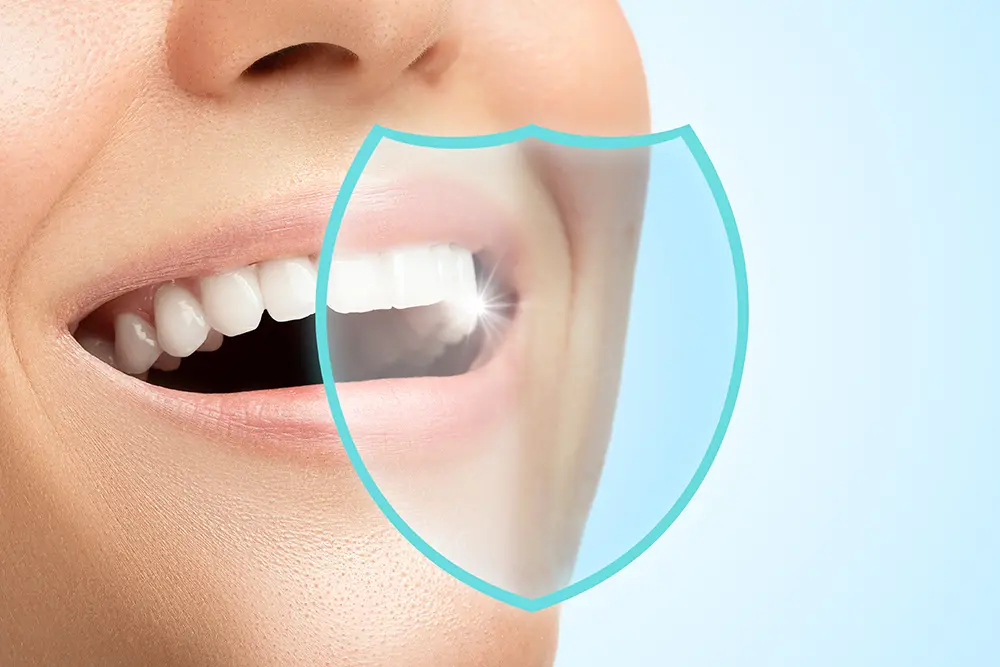Nail-biting is a common behaviour that typically begins during childhood and can continue through adulthood. It is often unsanitary even with the frequent washing of hands as you could be ingesting dirt sediments and germs from under the nails.
Biting your nails can damage your nail beds by leaving uneven and torn fingernails. This unwanted habit can also lead to oral health complications. Nail-biting also increases the risks of paronychia, also known as a nail infection. Nail infections often include swollen red areas around the nail and may cause pus-filled blisters.
Even though your teeth are harder than your nails, long-term nail-biting can cause some of these dental complications:
- Root Resorption
Continuous pressure from nail-biting can cause root resorption if you are wearing braces. This is because the braces are already applying pressure to teeth to move them and further unnecessary forces can cause root resorption. - Malocclusion
Nail-biting can cause teeth to move out of place, leading to crooked front teeth.
- Temporomandibular Joint Problems
Biting your nails forces your jaw to work in ways that it was not intended to work, causing muscular pain. - Chipping of Front Tooth or Restoration
Biting your fingernails can result in broken or chipped enamel from the friction. While a chipped tooth can be restored with fillings, continuous nail-biting can cause the restoration to come off.
Why Does Nail-Biting Happen?
This behaviour is commonly seen in children and teenagers usually starts out of boredom. It is also often associated with hair twirling, holding objects in their mouth or nibbling on a pen while concentrating on work. These subconscious habits are automatic and individuals may not be aware that they are exhibiting these bad habits.
Studies have shown that nail-biting habits may often be related to stress and anxiety. Such repetitive behaviours can be a coping mechanism for people managing challenging emotions.
Tips To Stop Nail-Biting
To prevent nail-biting, here are some things you can do to help break the habit.
- Trim nails to be shorter.
- Place post-it notes as reminders in places or on items you frequently access (e.g. the desk or computer screen).
- Practice relaxation techniques such as breathing exercises, meditation.
- Apply bitter-tasting nail polish that is available over the counter or gloves to discourage the nail-biting habit.
- See a doctor or psychologist if your habit is associated with anxiety.
Conclusion
Breaking any habit is challenging and nail-biting is no different. However, it’s also essential to break this habit if you want to protect your nails and maintain healthy teeth.
Some patients find it easier to avoid biting when wearing a mouthguard, orthodontic retainer, or orthodontic aligner such as Invisalign. Speak to your dentist to explore which options are best for you.




